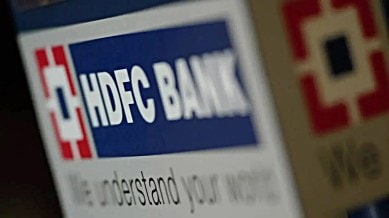Dubai regulator bars HDFC Bank’s DIFC branch from taking new clients
The DFSA is the independent regulator of financial services conducted in or from the DIFC, a purpose-built financial free zone in Dubai, UAE.

The Dubai Financial Services Authority (DFSA) has barred HDFC Bank’s Dubai International Financial Centre (DIFC) branch from soliciting or conducting business with new clients, effective September 26.
According to the filing, violations at the DIFC branch included providing financial services such as advising or arranging financial products and credit for customers not onboarded by the DIFC branch, issues with customer onboarding, and other related matters.
HDFC Bank clarified that the DIFC branch’s business is not material to the bank’s overall operations or financial position, and therefore no significant impact is expected. “As of September 23, 2025, the DIFC branch has 1,489 customers onboarded, including joint holders,” it said. The prohibition does not affect servicing of existing customers or onboarding of clients who were already offered financial services before being formally onboarded.
The bank added that it has initiated steps to comply with the directive and is committed to working with the DFSA to remediate the concerns at the earliest. The prohibition will remain in force until amended or revoked in writing by the DFSA.
The DFSA is the independent regulator of financial services conducted in or from the DIFC, a purpose-built financial free zone in Dubai, UAE.
HDFC Bank opened its DIFC branch on August 4, 2014, to provide wealth management services to the large Indian diaspora in the Gulf city. This was the bank’s third overseas branch after Bahrain and Hong Kong. In the UAE, HDFC Bank also has representative offices in Dubai and Abu Dhabi, as well as one in Kenya.
The DIFC branch offers advisory and wealth management services to NRIs in the UAE, including treasury products, trade finance, loans, and related services. The Bahrain and Hong Kong branches provide corporate banking, trade finance, loans, and deposits to corporates and ultra-high-net-worth individuals.
The DFSA’s regulatory mandate spans asset management, banking and credit services, securities, collective investment funds, custody and trust services, commodities futures trading, Islamic finance, insurance, an international equities exchange, and an international commodities derivatives exchange. It also supervises and enforces anti-money laundering (AML) and counter-terrorist financing (CTF) requirements applicable within the DIFC.